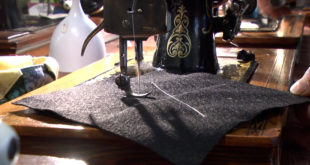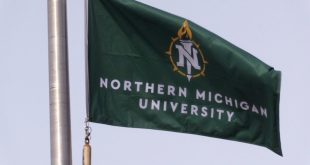DETROIT— U.S. Army Corps of Engineers, USACE, Detroit District, announces a contract option award to dredge stamp sands in the Keweenaw Peninsula of Michigan’s Upper Peninsula between Gay, Michigan and the Grand Traverse Harbor.
The Environmental Protection Agency, EPA, provided USACE with an additional $946,000 in Great Lakes Restoration Initiative, GLRI, funding to award the three options on the contract with Petersen Companies, Inc., of Minocqua, Wisconsin.
“This is great news and is another example of the continuing progress being made under the Great Lakes Restoration Initiative, and the EPA’s commitment to protect valuable resources in the Great Lakes for future generations,” said Steve Check, project manager, U.S. Army Corps of Engineers, Detroit District.
The award of these options will permit Petersen Companies, Inc. to dredge an additional 50,000 cubic yards of stamp sands from the ancient riverbed area north of Buffalo Reef known as the ‘trough’ in order to delay further sedimentation by the littoral drift of the stamp sands into the reef and the juvenile whitefish recruitment area south of the harbor. This brings the total estimated cubic yards to 157,500. This total is comprised of 27,500 cubic yards in and around the Grand Traverse Harbor area, and an additional 130,000 cubic yards of stamp sands from the trough.
Dredging is scheduled to begin during spring 2019 and complete during summer 2019.
This project is being executed in cooperation between the U.S. Army Corps of Engineers, U.S. Environmental Protection Agency, Keweenaw Bay Indian Community, the Michigan Department of Natural Resources and Michigan Department of Environmental Quality to save the 2,200 acre Buffalo Reef in Lake Superior from the encroaching stamp sands.
EPA administers GLRI, while USACE is one of 16 participating federal agencies in GLRI to protect and restore the Great Lakes. GLRI has already made major strides in cleaning up contaminated sediments from the Great Lakes, as well as in preventing the spread of invasive species, and in restoring fish and wildlife habitat throughout the Great Lakes’ watershed.
For more details, please contact Lynn Rose, director of public affairs, 313-226-4680.
 Keweenaw Report Your Source for Local News and Sports
Keweenaw Report Your Source for Local News and Sports





